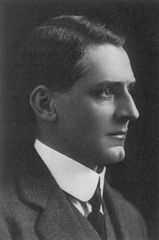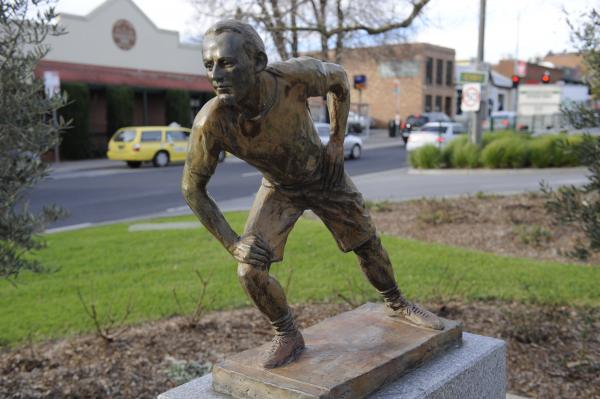A century ago this month, a group of prominent Berwick residents gathered to form the Returned Wounded Soldiers Aid Society.
Among them was an Australian sporting icon Edwin Flack.
The charitable group had previously arranged to take four seriously wounded soldiers from the Base Hospital and pay for them to receive better care in Nurse Duigan’s private hospital in Berwick for a month.
“It is hoped this movement will spread throughout the country districts, which would materially assist the Government in caring for the great number of wounded men returning from the front,” the Gazette reported in August 1917.
The “gentlemen interested in this matter” were chairman William Wilson junior, whose family operated the Wilson Quarry, prominent local doctor Percy Langmore, Scott Sharp, L.D. Beaumont, Dr Griffin, the Richardson brothers, Evan C. Henry (the honorary secretary) and Flack.
The latter rose to fame as Australia’s first Olympic Games gold medallist.
Australia’s only competitor in the first modern Olympics held in Athens in 1896, he won the 800 metre and 1500 metre running events while based in London to further his accountancy career.
Believed to have grown up in South Yarra, Edwin was educated at Melbourne Grammar.
His family ran a highly regarded accountancy firm – eventually absorbed by Price, Waterhouse and Co – and Edwin went on to become a bit part of the business.
Edwin was a prominent businessman when he bought a dairy farm in Berwick in 1916 and established a successful Friesian stud, Burnbank, which experienced a lot of success at the Royal Melbourne Show.
He worked in Melbourne during the week, staying in an apartment at Cliveden Mansions in East Melbourne, the site of the old Hilton Hotel, and would travel to Berwick on weekends.
Never marrying, he had a housekeeper to tend to his needs when in Berwick.
Burnbank hosted many a social occasion for the Berwick community.
The book Edwin Flack – The Lion of Athens, written by Berwick-born journalist Peter Sweeney, said the annual Flack and Flack staff cricket match at Burnbank was a not-to-be-missed affair.
A 1931 note from Flack said all would meet at the farm at 11 o’clock when his business partner Charles Gamble would have “all the sheep, cattle and pigs assembled so that inspection of all stock can be carried out from an adjoining paddock”.
Flack and Flack had its own cricket club and would play other companies included G.J. Coles, Young and Outhwaite, Vacuum Oil, Jolimont Workshops, J.B. Were and the Wormald Brothers.
The staff loved visiting Burnbank to play cricket, Sweeney wrote, thankful to be in the country air and some penned poems by way of thanks.
When Edwin Flack died in January 1935, it was his wish to be interred at the Berwick Cemetery, such was his love for the district.
Sixty years later, in 1995, a group of Berwick residents met to decide how best to recognise his achievements.
It was decided to undertake three projects – the erection of a statue on the grassed median in High Street, refurbish his neglected grave and establish a record of Australia’s Olympic gold medallists on bronze statues at Edwin Flack Reserve, which had been earlier named in his honour by the local council.








